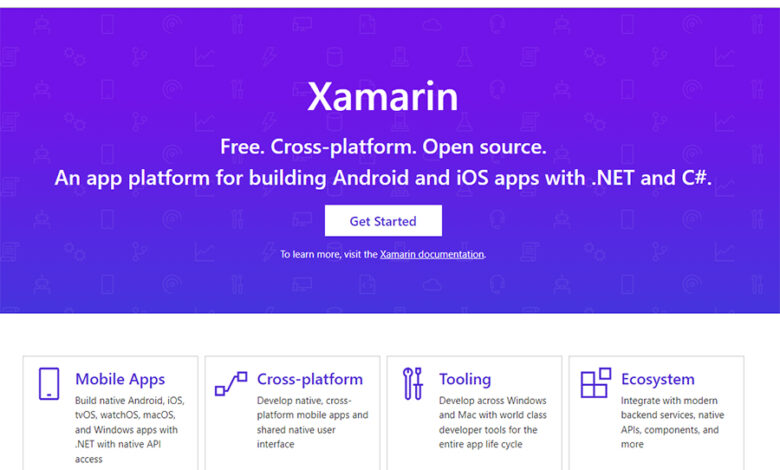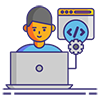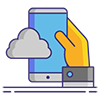What is Xamarin

What Is Xamarin?
Xamarin is an open-source app development platform owned by Microsoft. With Xamarin, you can build native applications for Android, iOS, and Windows using the .NET developer platform.
Xamarin started as a commercial platform before it was acquired by Microsoft in 2016. Now it’s one of the most popular cross-platform app development tools around with over 1.4 million users.
Read on to discover how what is Xamarin, how it works, what are its benefits, and who it’s best suited for.
What is Xamarin – How Does it Work?
 Xamarin enables developers to write business logic in C# and share it across platforms. The business logic is the part of the code that determines how the app creates, stores, and changes data.
Xamarin enables developers to write business logic in C# and share it across platforms. The business logic is the part of the code that determines how the app creates, stores, and changes data.
At the same time, Xamarin allows developers to build native user interfaces (UI) for each platform. Xamarin uses the open-source UI framework Xamarin.Forms through which developers can build mobile applications using a shared codebase.
The platform also comes with the Xamarin.Essentials library that provides cross-platform application programming interfaces (APIs). With Xamarin.Essentials, developers can take advantage of native device features like Accelerometer, Device info, or Screen Lock.
Xamarin is built on .NET, Microsoft’s development platform that allocates memory and handles garbage collection during the development process.
With Xamarin you can build mobile applications for Android, iOS, and Windows. You can also build applications for PC, Linux, macOS, tvOS, and watchOS.
When developing software with Xamarin on a Windows computer, you’ll be using Visual Studio, Android and Windows software development kits (SDKs), and emulators for Android and Windows Phone. On Mac, you’ll be using Xcode, Visual Studio for Mac, and an iOS Simulator.
What is Xamarin – Key Features
Next, let’s explore some of Xamarin’s highlight features.
- Share up to 90% of code across platforms – With Xamarin, developers can save time building apps across major platforms by reusing most of the code instead of having to rewrite it for every single platform. Code-sharing across platforms can also mean lower development costs and a faster app to market time.
- Write business logic in a single language – Xamarin enables developers to write all the business logic of an app in C# without compromising the performance or look of apps built for different platforms.
- Near-native performance and feel – You can create native UIs for each platform using native components. Xamarin-built apps look and feel like native apps whether they’re made for iOS, Android, or Windows.
- Works on both PC and Mac – You can use Xamarin on both PC and Mac. However, to build iOS apps, you have to use a macOS computer.
- Use platform-specific code – Xamarin allows you to use platform code such as Swift for iOS and C# for Android to develop platform-specific functions for apps.
- Complete development ecosystem – Third-party libraries and C# focus mean that Xamarin and its ecosystem provide you with all the tools you need to build native-level apps. You don’t have to keep switching between platforms and environments.
- Easier app updates – Because Xamarin uses only one programming language, developers can update apps for different platforms at the same time. This can be another time saver, especially for apps that can benefit from a quick development cycle.
What is Xamarin – Any Limitations?
 You can’t use all the third-party libraries available for iOS or Android—rather, you’re limited to components provided by the platform. You’ll also find that apps built with Xamarin are larger than native apps. Lastly, developing apps with heavy graphics can be a long and complicated process, and the results may still not be as good as using native app development.
You can’t use all the third-party libraries available for iOS or Android—rather, you’re limited to components provided by the platform. You’ll also find that apps built with Xamarin are larger than native apps. Lastly, developing apps with heavy graphics can be a long and complicated process, and the results may still not be as good as using native app development.
What is Xamarin – Who Is It For?
In the end, Xamarin is a powerful app development platform that can help you save time and money building cross-platform apps that look and feel like native apps.
If you want to share business logic code between apps and enjoy all the advantages that come with that—such as quicker updates across platforms—Xamarin can be a good choice for you.
Developers and organizations that need to launch apps across platforms fast without compromising quality and maintenance them with ease will enjoy Xamarin. Especially if they already feel comfortable in Microsoft’s app development ecosystem.
